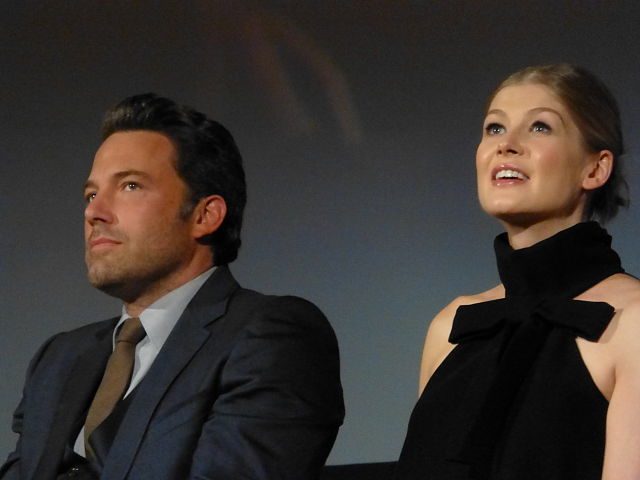“that look she gives you right before she destroys your life <3”
Reads a tweet from the official “Netflix Film” Twitter account, posted alongside three images of Rosamund Pike in her signature blonde bob, smugly peering over sunglasses in the movie I Care A Lot.
I Care A Lot follows Marla Grayson, Pike, and her lover/business partner Fran, Eiza González, as they systematically, and somehow mostly legally, grift the livelihoods of old people. First they assume guardianship of the elderly with help from one corrupt doctor and an overworked judicial system. Then they promptly put them in nursing homes — cutting them off from their families as they sell their homes and belongings. The plausibility of the grift and its alignment with the morality of productivity culture seems to be the movie’s primary social commentary. It is terrifying to watch.
The satirical plot is set into motion when one elderly client has an undisclosed son that loves donuts, does gymnastics and has a fortune in drug trafficking, and who Marla refuses to let buy her off. They instead fight each other until the movie becomes a fluorescent-colored psychological thriller aesthetically akin to the Punisher album cover. One side opens fire in a nursing home while dressed straight out of a Vineyard Vines catalog, and the other side pays homage to Gone Girl with a terrible disguise and an omitted vape business backstory in place of The Cool Girl Rant. Both sides almost die in the process.
I cannot describe Marla Grayson better than the person on Letterboxd who said “unnuanced girlboss.” She stands in this movie, vaping in her yellow suit and platform Keds, asking us if we as a society really needed this knock-off, Amy Dunne. She aggressively parallels Gone Girl’s Dunne. The movie really could have capitalized on the similarities to satirize Dunne’s type of feminism and the Hollywood obsession with reproducing formulas that have already proven financially viable. Both characters are not complicated in the sense that they acknowledge the deeply human experiences of resentment, rage, self-destruction, loneliness, or even entitlement for people under capitalism and patriarchy like other characters, usually women, given this label. These characters are wholly unlikable in that they have no redeeming qualities. They are not the “feminist icons” they think they are. Their stories revolve around knowingly weaponizing their privilege as conventionally attractive, well-off White women to do deeply insidious things because they can.
But a disconnect exists between the way Marla’s one-dimensional unlikability was presented within this satirical, dark-comedy, and how potentially interesting and bold the combination could have been. The insistence from Pike and the movie’s makers that Marla is supposed to “draw us in” and be “fascinating” rather than just unequivocally evil is disappointing. They missed the opportunity to embrace the way Marla’s pure unlikability challenges our collective need as spectators to root for a protagonist. Most viewers vehemently, and correctly, believe there is nobody to root for in this movie. Many go as far as saying this makes it not worth watching at all.
The tweet I opened with also highlights something disappointing about the representation of this movie. Specifically, it is disappointing that Netflix’s promotional angle for something that attempts to satirize accelerated capitalism and girlboss feminism is “look how hot she is while she terrorizes these helpless old people.” It both profoundly misses the point of the movie and speaks to what makes female characters valuable to corporate Hollywood. This approach takes away all interesting aspects of Marla within the tonal complexities of the movie, and reduces them to the voyeuristic attractiveness of the character. It is another missed opportunity to challenge the way the Hollywood machine constructs and promotes characters, especially within the growing “antiheroine” category.
Allowing Marla to be purely unlikable would have lent itself to the movie’s message, and posed the question of whether or not a protagonist’s implicit didacticism lies in our ability to relate to or empathize with them. Instead, this movie that sets out to satirize late-stage capitalism lets Hollywood’s obsession with neoliberal capital stop it from taking risks and challenging conventional character-spectator relationships and a frustrating trope. I Care A Lot ends up walking a blurred line between satire and what I really hope is satire because if not, the movie misses its own point — defeating itself before it can say anything at all.
For now though, if you learn one thing from this movie, let it be that if you want the narrative telling of your life story to be a wannabe Safdie brothers movie, you could always approach the system Marla’s way.
- A Great Day For Self-Inflicted Millennial Despair - October 1, 2021
- Growing Up With Clairo - July 23, 2021
- Never Meet Your Heroes - July 1, 2021

